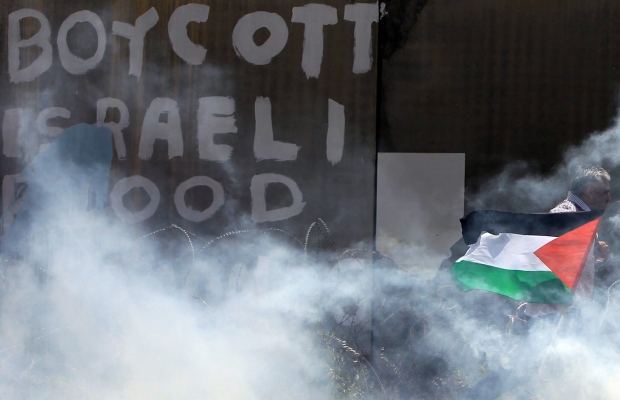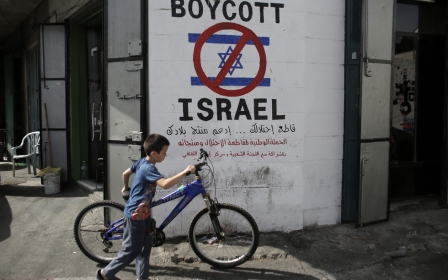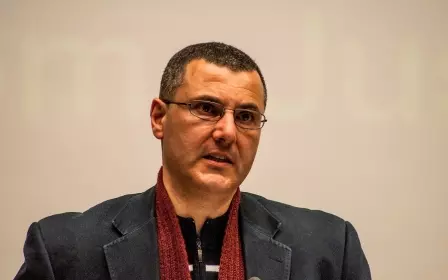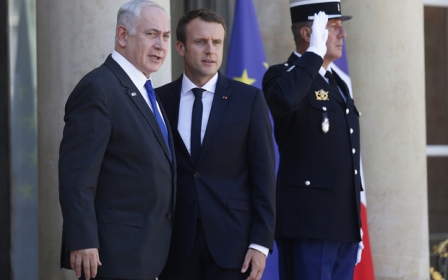Israel's new BDS 'blacklist' confirms its desperation
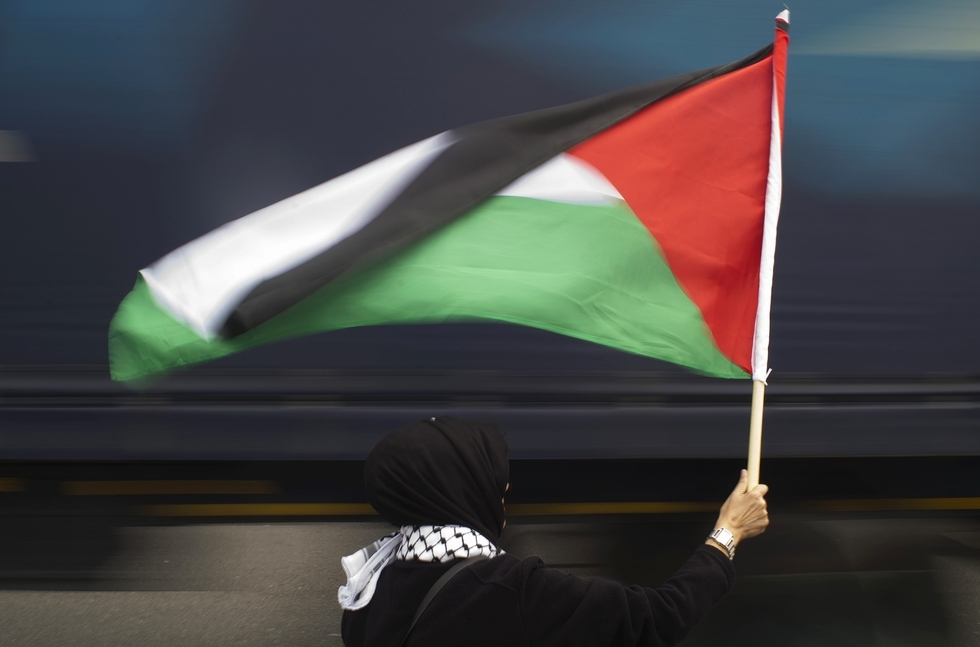
Israel's new list banning members of human rights organisations and solidarity campaigns that it says promotes the Boycott, Divestment and Sanctions movement (BDS) from entering Palestine is yet another boomerang in its ever more desperate attempts to curb the group.
This list further isolates Israel’s apartheid regime, not the Palestinians.
This ban is part of Israel's "war against BDS", with all its illegal practices of surveillance, intimidation and violation of the right to freedom of expression and movement
Apartheid regime
The iron curtain that Israel has imposed around itself to defend its apartheid regime is what drives the BDS movement, not what stops it. Closed borders is nothing new. The majority of Palestinians seek their right of return to their homes and land, denied since 1948 when, during the Nakba, Israel established itself by expelling us, the indigenous people of the land, and destroying our villages.
Israel's denial of the internationally sanctioned right to return of our refugees is one of the key reasons that led us to issue the call for BDS and the demand for the implementation of this right is integral to it.
Racial profiling against Arabs and people of colour in general when issuing visas or even when they want to board airplanes to Tel Aviv has been commonplace since I can remember. This is compounded now by increasingly dramatic policies of expulsion of non-white people, even if they are not Palestinians.
It is not by chance that on the same day that Israel released its list of banned organisations, it issued a decree to expel over 40,000 African migrants that, according to Israeli officials, threaten the "Jewish and democratic character" of the state of Israel.
Over the past six years only four asylum seekers have been granted refugee status.
By banning some of the most principled human rights organisations, Israel is showing ever more clearly to the world its exclusionary, supremacist and anti-democratic character
What is new is not that Israel bans people but that it has now officially issued rules that define not only the ethno-religious group one has to belong, but the ideology one has to hold in order to be granted access to Israeli-controlled territory.
For the first time, a ban on entering is directed towards organisations which are primarily European and North American, including Christian and Jewish organisations. Even a Quaker organisation, which received the Nobel Peace Prize for rescuing refugees from the Nazis during the Second World War, made it on the list.
By banning some of the most principled human rights organisations campaigning for the implementation of international law, Israel is showing ever more clearly to the world its exclusionary, supremacist and anti-democratic character.
This pits Israel against a growing number of European governments that have explicitly recognised the right of their citizens to promote the BDS movement.
A badge of honour
The policy to ban solidarity activists, whether or not they campaign for BDS, has already been in place for years. In March, the Israeli Knesset passed a law denying entry to "foreign nationals who call for economic, cultural or academic boycotts of either Israel or the settlements".
I know many leading activists that have been barred from entering Palestine – some as long back as the First Intifada. I don't know a single one of them that would have been silenced, intimidated or that would have stopped activism because of this.
On the contrary, when Rebecca Vilkomerson, the director of Jewish Voice for Peace whose leadership is now officially banned from entering Israel, writes of her personal feeling of "pain of exclusion for the first time from a place that I am bound to by deep ties", she talks as well about her deep understanding of what it means for six million Palestinians to be barred from their homeland for 70 years.
Due to Israel's and Trump's racist and exclusionary policies, we may not ever meet but I am sure we are closer now than ever before. This goes for all the other activists that are denied entry to our homeland.
The first reactions of the listed organisations are therefore unsurprisingly unanimous. They carry the ban as a badge of honour and reiterate their determination to continue and strengthen their BDS campaigns.
Hiding Israel's crimes
Furthermore, it is likely that in concrete terms the new regulations are more a failed intimidation attempt than truly effective. According to officials, those "who are not known to the ministry from public sources, will not necessarily be stopped". While this is a truism, it shows as well that Israel has no way of barring but a few of the most prominent activists.
The BDS movement is built by a daily increasing number of people of conscience around the world that mobilise for justice, freedom and equality in Palestine.
As much as Israel wants to spend on illegally spying on foreign citizens, threaten activists with "targeted civil elimination" or warn them that "there will be a price tag", we are too many in the BDS movement – inside and outside of Palestine – to be stopped.
If the aim of the regulation is to hide Israel's crimes, even this will hardly be achieved. There is no way even the most repressive measures of Israeli apartheid can stop the truth from passing to the world.
No brutal siege, no eight metre high cement walls and no denials of entry can stop the news, the pictures and the testimonies of Israeli atrocities and human rights violations, and of Palestinian struggle and steadfastness.
People will continue to speak out. The BDS movement will continue to grow - precisely because the ban shows that BDS is working.
A spark of hope
They say that "first they ignore you, then they laugh at you, then they fight you, then you win". In fact, even though the situation on the ground in Palestine is becoming every day more unbearable, we may well be past the tipping point.
BDS brings us the much needed spark of hope to continue our struggle, and has become a powerful tool of people across the globe to join forces and collectively put effective pressure on an apartheid regime that otherwise thinks itself above law and criticism.
There are, however, urgent reasons to take action beyond addressing the human suffering the ban causes for activists. It is a policy closely following the script of apartheid - Israel bans human rights defenders today just as South Africa did at the time.
This ban is part of Israel's "war against BDS", with all its illegal practices of surveillance, intimidation and violation of the right to freedom of expression and movement. It is yet another form in which Israeli repression goes global.
Israel has since long offered its expertise of repression, whether in form of trainings or the supply of military equipment, to governments around the world with disastrous effects especially for the most oppressed people. It is now directly projecting its anti-democratic policies globally, targeting international human rights defenders.
It is time for people around the world to strengthen the BDS movement and to demand that their governments condemn the flagrant, planned and systematic breaches of human rights by Israel against our people and their own citizens and pressure them to hold Israel accountable for the violations of the rights of their citizens and Palestinian human rights.
To start off 2018, the year that marks 70 years of ongoing Nakba, Israel has reminded people and activists all over the world about the core issues at stake.
Let's stand together to break down Israel's physical and legal walls that aim to stop our common quest for freedom and dedicate 2018 to BDS and the struggle for return. In a free Palestine and a world without walls, we will be able to reunite in justice and equality.
- Jamal Juma' was born in Jerusalem and attended Birzeit University, where he became politically active. Since the first Intifada, he has focused on grassroots activism. Juma' is since 2002 the coordinator of the Palestinian Grassroots Anti-Apartheid Wall Campaign and since 2012 the coordinator of the Land Defence Coalition, a network of Palestinian grassroots movements.
The views expressed in this article belong to the author and do not necessarily reflect the editorial policy of Middle East Eye.
Photo:A woman holds a Palestinian flag as a truck passes by during a protest against Grammy-winning American musician Pharrell Williams near the Grand West Casino where he was holding a concert in Cape Town, on 21 September 2015. Supporters of the Boycott, Divestment and Sanctions (BDS) campaign were protesting against the singer's partnership with major South African retail group Woolworths, over its imports from Israel (AFP)
New MEE newsletter: Jerusalem Dispatch
Sign up to get the latest insights and analysis on Israel-Palestine, alongside Turkey Unpacked and other MEE newsletters
Middle East Eye delivers independent and unrivalled coverage and analysis of the Middle East, North Africa and beyond. To learn more about republishing this content and the associated fees, please fill out this form. More about MEE can be found here.



